Go through the following flow sheet. Based on, it answer the questions given at the end of it.
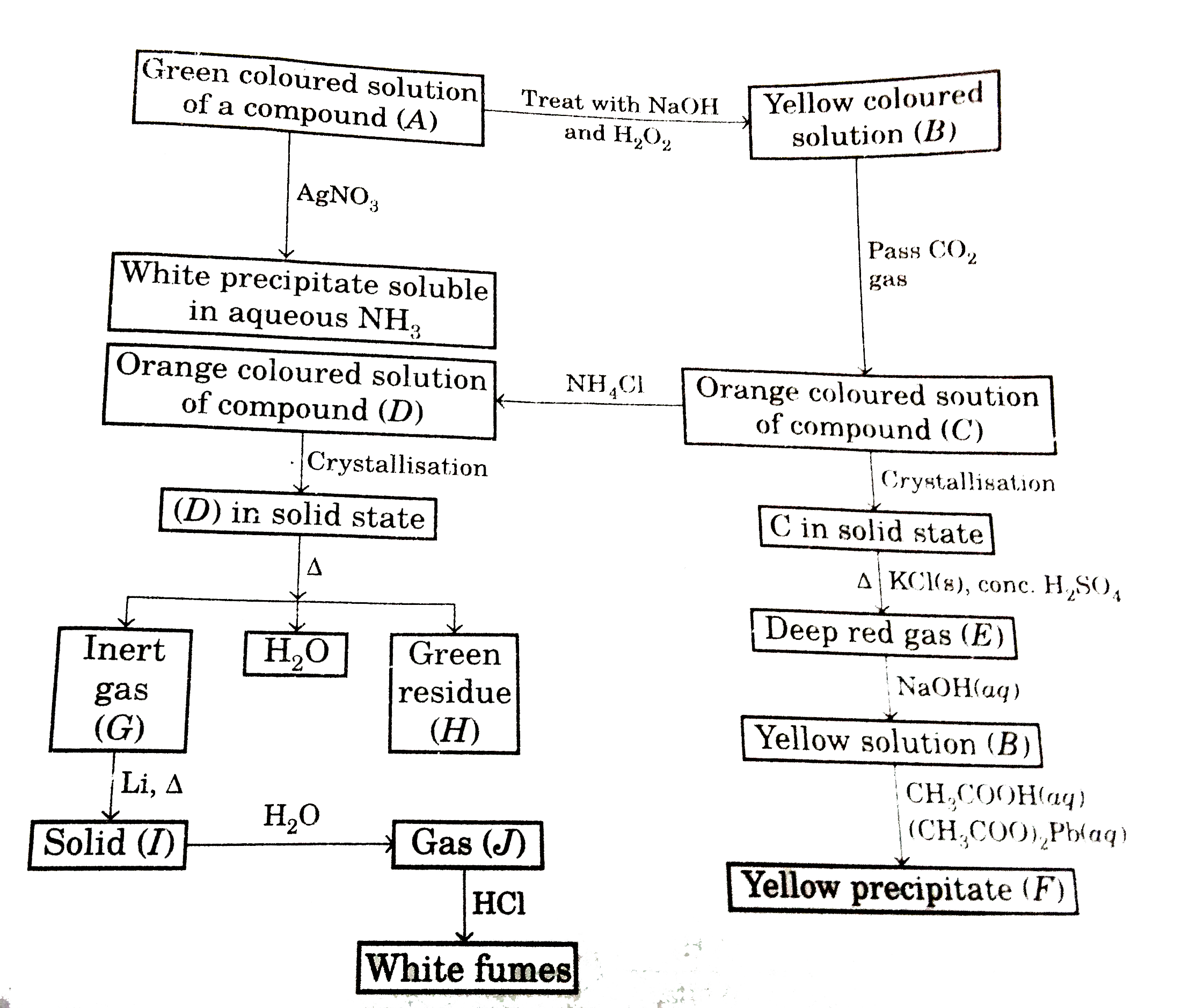
Formation of (F) using (solid) and concentrated is called:
redox test of
chromy-chloride test of
chromyl-chloride test of
none of the above is correct
The correct Answer is:B
Topper's Solved these Questions
- SALT ANALYSISBOOK - GRB PUBLICATIONCHAPTER - SALT ANALYSISEXERCISE - Comprehension 2
1 Videos
- SALT ANALYSISBOOK - GRB PUBLICATIONCHAPTER - SALT ANALYSISEXERCISE - Comprehension 3
1 Videos
- SALT ANALYSISBOOK - GRB PUBLICATIONCHAPTER - SALT ANALYSISEXERCISE - Comprehension 1
1 Videos
- S BLOCK ELEMENTSBOOK - GRB PUBLICATIONCHAPTER - S BLOCK ELEMENTSEXERCISE - SUBJECTIVE TYPE
9 Videos
- THERMODYNAMICSBOOK - GRB PUBLICATIONCHAPTER - THERMODYNAMICSEXERCISE - All Questions
704 Videos
Similar Questions
Knowledge Check
Go through the following flow sheet. Based on, it answer the questions given at the end of it.
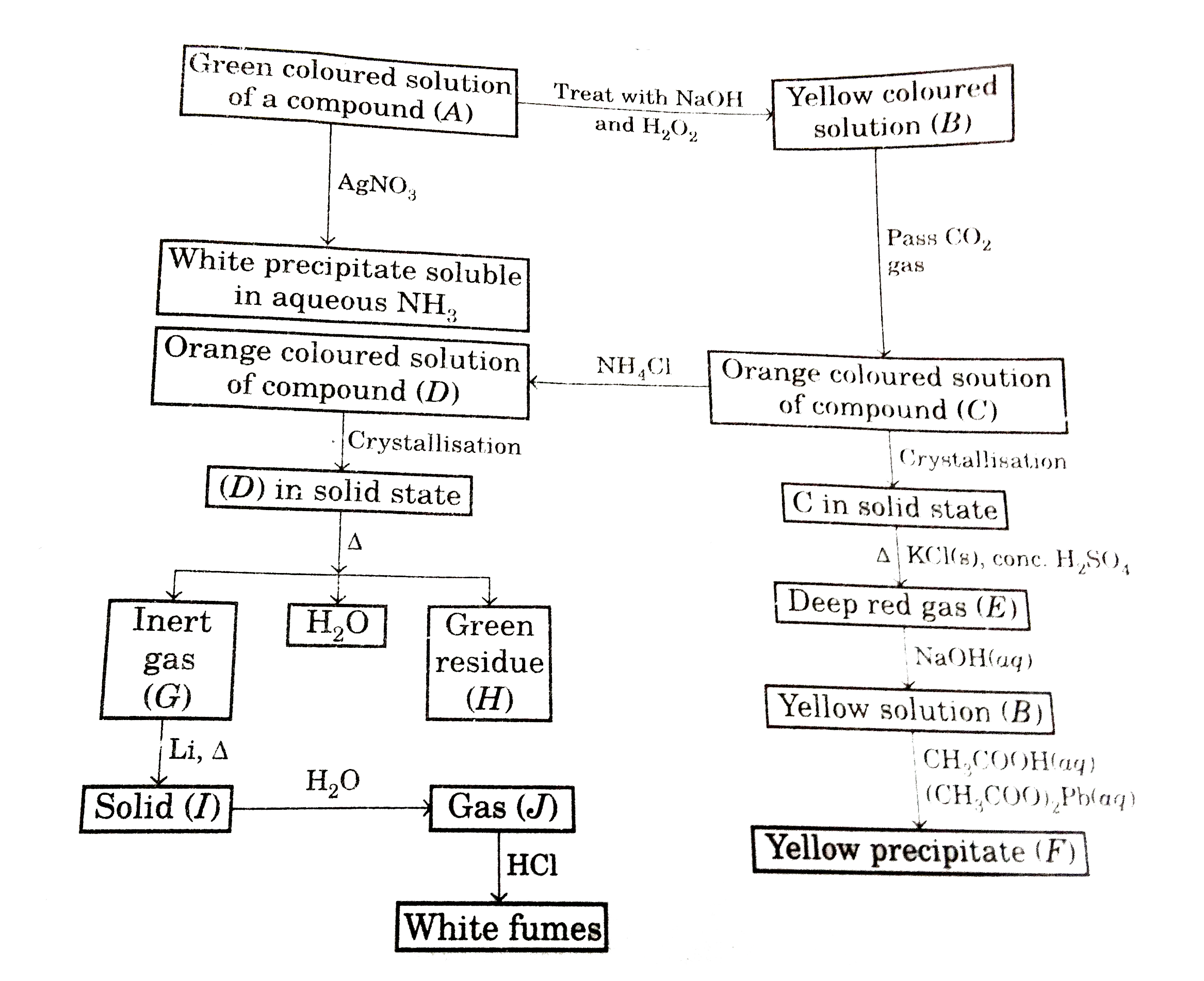
Compound (A) is:ACuCI2BFeCI3CFeCI2DCrCI3Go through the following flow sheet. Based on, it answer the questions given at the end of it.
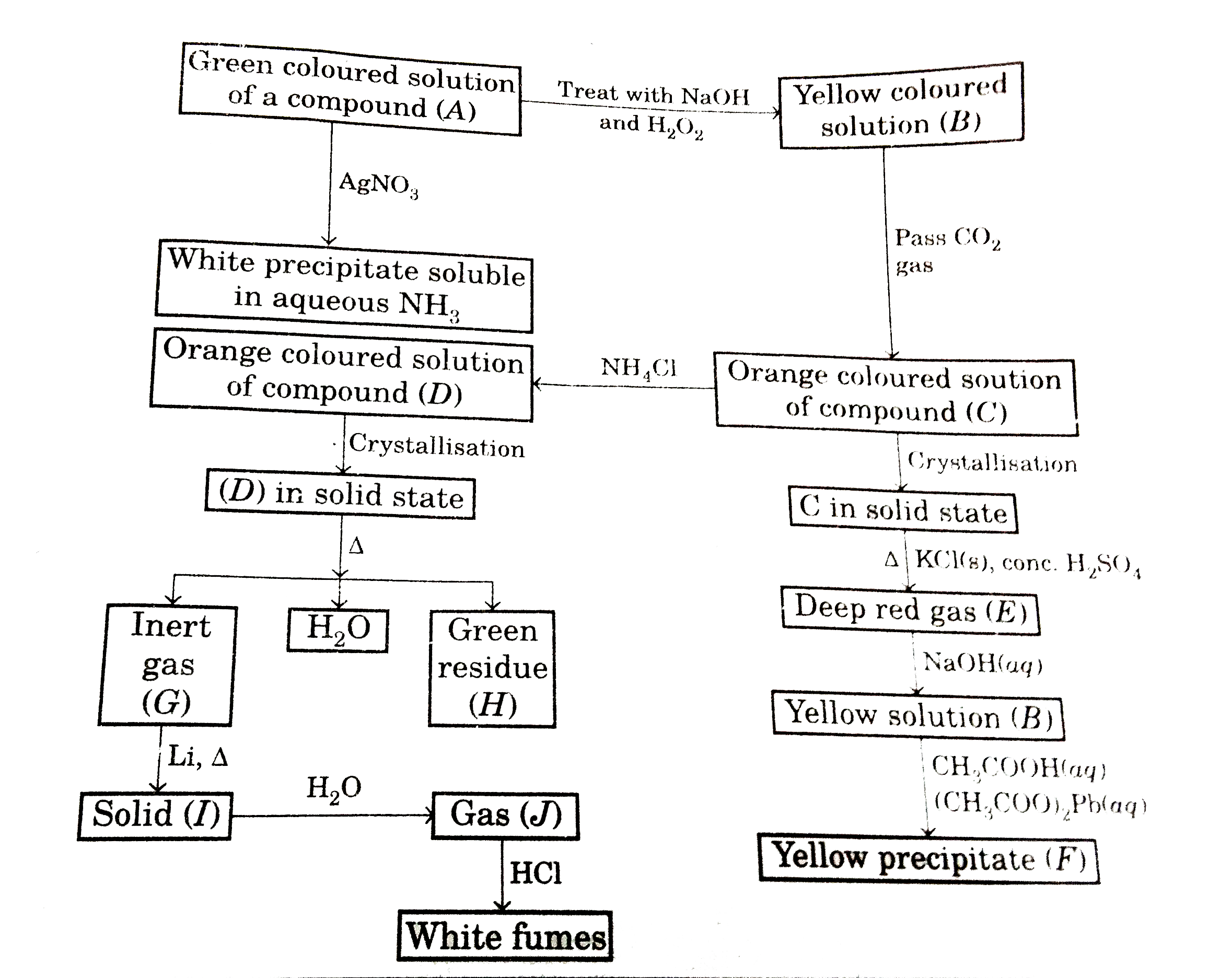
Select correct statement(s):ACO2 makes the solution of (B) acidic and converts (B) into FeCI2(C).BCO2 makes the solution of (B) basic and converts it into Na2Cr2O7CCO2 makes the solution of (B) acidic and converts it into Na2Cr2O7DNone of the above is correctGo through the following flow sheet. Based on, it answer the questions given at the end of it.
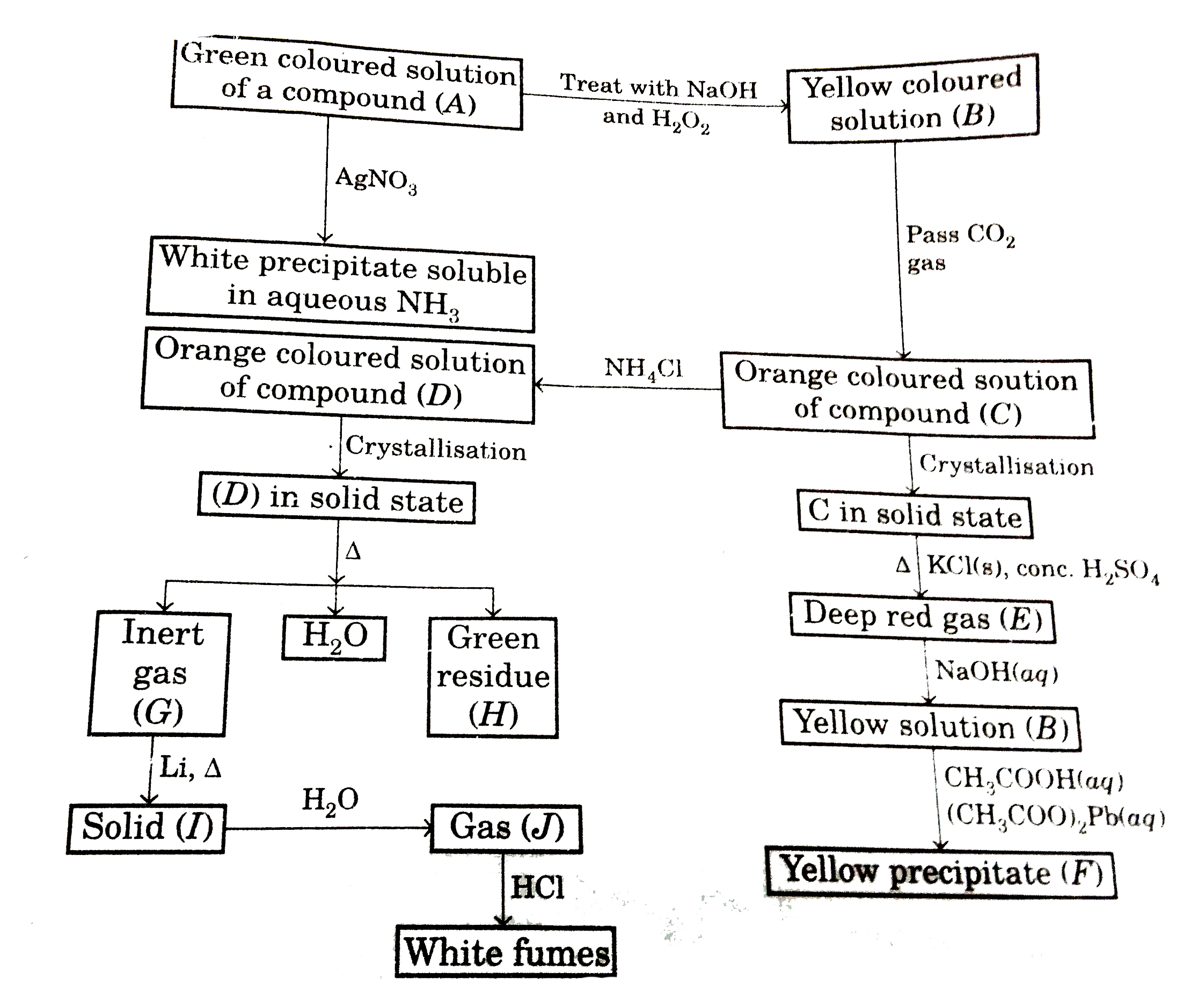
Yellow coloured solution (B) is of:ANa2CrO4 formed by oxidation of Cr3+ by H2O2 in alkaline mediumBFeCI2 formed by reduction of FeCI3 by H2O2CFeCI3 formed by oxidation of FeCI2 by H2O2DCu(OH)2 formed by precipitation of CuCI2 by H2O2/NaOH
Describe the mechanism for the formation of diethyl ether from ethanol in the presence of concentrated H2SO4
View SolutionArrange reactivity of given alcohols in decreasing order for dehydration reaction with concentrated H2SO4

View SolutionFollowing two graphs are based on the conductometric titration of acid-base reaction. Answer the questions given at the end of it.

Select correct statement,
View SolutionGo through the following flow sheet. Based on, it answer the questions given at the end of it.
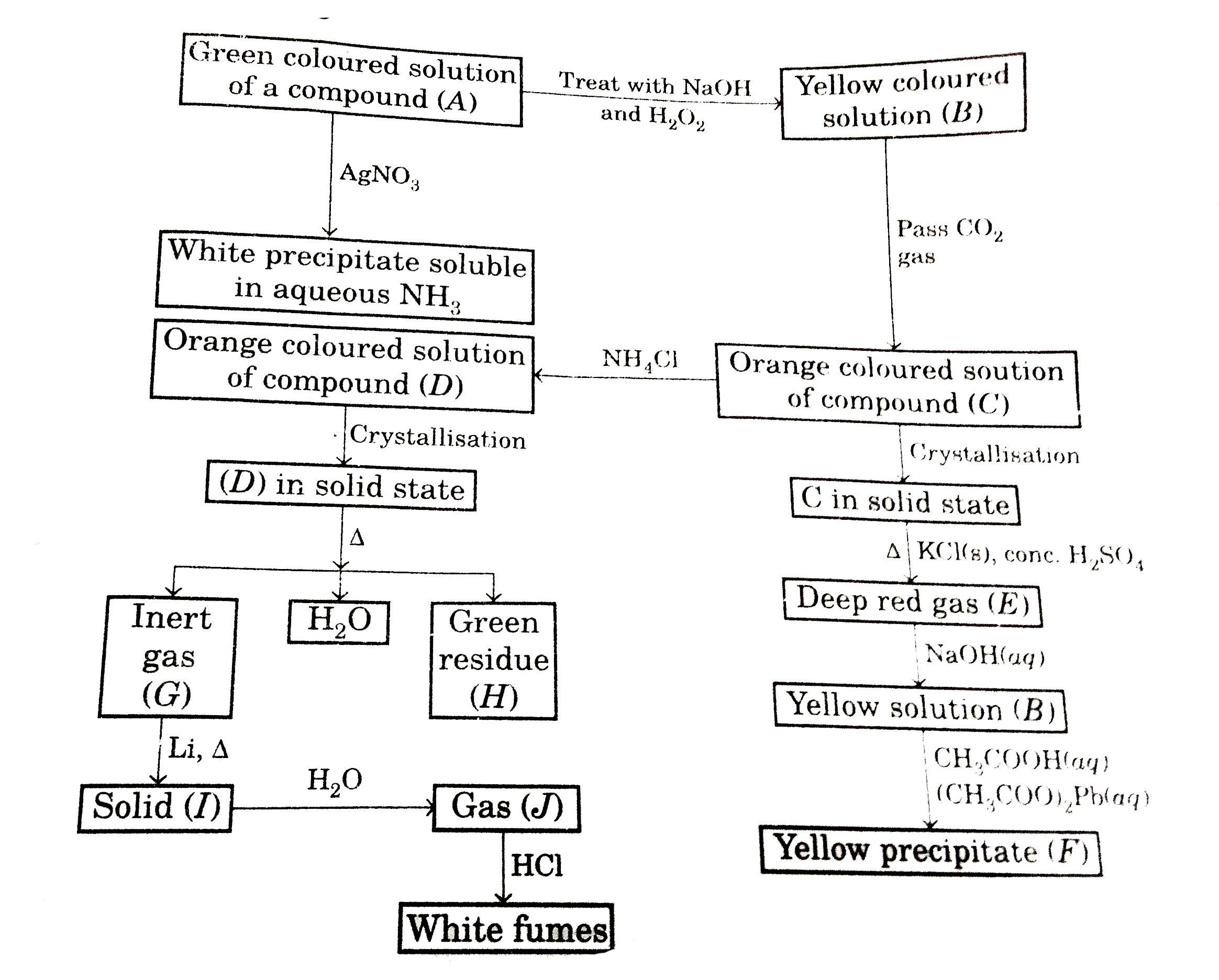
Compounds D,E and F respectively are:
View SolutionStudy the following circuit and answer any four questions given below:
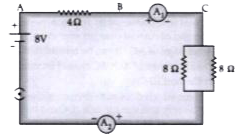
Find the amount of current flowing through 4Ω resistor.
View Solution
